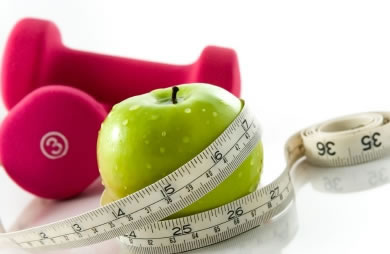 Pregnancy is a fantastically emotional experience. Thanks to some major hormonal changes, which provide the ideal environment to sustain and nourish your growing baby, pregnancy can also wreak havoc on your emotions. Add to that the physical strain of extra weight, worries of being a new parent, and the development of some unwanted stretch marks, and it can spell trouble for some women. Depression and anxiety are realities for many pregnant women. But how do you know if you're suffering from a medical condition or just the blues? And if it's serious, is there anything you can do to treat your condition without harming your baby?
Pregnancy is a fantastically emotional experience. Thanks to some major hormonal changes, which provide the ideal environment to sustain and nourish your growing baby, pregnancy can also wreak havoc on your emotions. Add to that the physical strain of extra weight, worries of being a new parent, and the development of some unwanted stretch marks, and it can spell trouble for some women. Depression and anxiety are realities for many pregnant women. But how do you know if you're suffering from a medical condition or just the blues? And if it's serious, is there anything you can do to treat your condition without harming your baby?
Warning Signs Every woman goes through a different emotional experience leading up to her baby's birth. Most women experience anxiety, fatigue, loneliness, irritability, and moodiness, which are normal responses to pregnancy. After all, it's a physically and emotionally life-changing experience. These feelings are generally considered normal and usually pass as time goes on. But always be mindful of your symptoms, and don't be afraid to discuss them with your health care provider. Up to 20 percent of moms-to-be experience some level of clinical depression. For whatever reason, these women's symptoms escalate in frequency, severity and/or duration. You could be at greater risk of developing depression during pregnancy if you:
Getting Help Feeling depressed during pregnancy does not mean you are a bad mother. It doesn't indicate that you don't love your baby, and it doesn't mean that you're not happy to become a mom. It just means that you are depressed, and there is no shame in getting help. Speak to your health care provider candidly about your feelings, thoughts and emotions. Remember that this person is a professional who will not judge you, but will try to help you however possible. Together, you can come up with a treatment plan that helps you feel better while minimizing the risks to your baby. Your health care provider might suggest supplements, hormone therapy, counseling, or medications that could help. Depression can be related to an iron deficiency, so increased iron intake might be recommended, as well. The most commonly prescribed antidepressants are Prozac, Zoloft, Paxil, Lexapro, and Effexor, but you should be cautious when considering medications. The benefits of pharmaceuticals should be weighed against the risks they might pose to the fetus. Some medications are considered safe for pregnant and nursing women, however. Sometimes the best medicine for depression is a good support system. Speaking openly and honestly with a trusted friend, counselor, or other women who are going through similar experiences can be very therapeutic. Also make a point of taking good care of yourself-sleeping, relaxing, visiting friends, getting out of the house, eating healthy foods and staying active. If you your symptoms don't resolve after several weeks, if they feel urgent, or you notice a severe increase in their intensity, talk to your physician right away. If you are seriously thinking about harming yourself or anyone else, please call the National Suicide Prevention hotline (1-800-273-8255) right now. You can also call 911 (or a local crisis hotline), if you prefer. One of the most important things a baby needs is a parent who is healthy, so don't put yourself on the back burner! It is important to recognize potential depression and deal with it before it spirals out of control. |
Depression During Pregnancy
Dealing with Antenatal Depression
Page 1 of 1






Member Comments